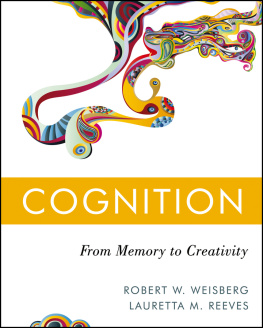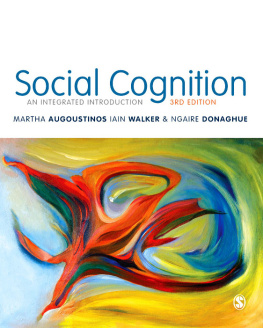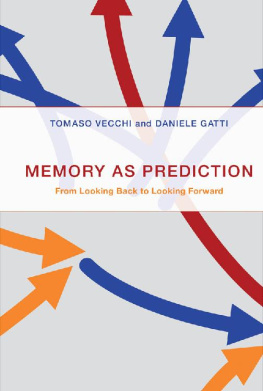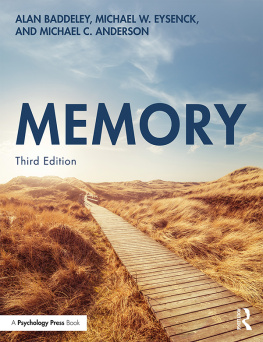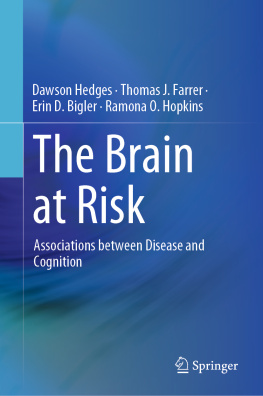
Cover image: bekas007/iStockphoto
Cover design: John Wiley & Sons, Inc.
This book is printed on acid-free paper.
Copyright 2013 by John Wiley & Sons, Inc. All rights reserved
Published by John Wiley & Sons, Inc., Hoboken, New Jersey
Published simultaneously in Canada
No part of this publication may be reproduced, stored in a retrieval system, or transmitted in any form or by any means, electronic, mechanical, photocopying, recording, scanning, or otherwise, except as permitted under Section 107 or 108 of the 1976 United States Copyright Act, without either the prior written permission of the Publisher, or authorization through payment of the appropriate per-copy fee to the Copyright Clearance Center, 222 Rosewood Drive, Danvers, MA 01923, (978) 750-8400, fax (978) 646-8600, or on the web at www.copyright.com. Requests to the Publisher for permission should be addressed to the Permissions Department, John Wiley & Sons, Inc., 111 River Street, Hoboken, NJ 07030, (201) 748-6011, fax (201) 748-6008, or online at www.wiley.com/go/permissions.
Limit of Liability/Disclaimer of Warranty: While the publisher and author have used their best efforts in preparing this book, they make no representations or warranties with the respect to the accuracy or completeness of the contents of this book and specifically disclaim any implied warranties of merchantability or fitness for a particular purpose. No warranty may be created or extended by sales representatives or written sales materials. The advice and strategies contained herein may not be suitable for your situation. You should consult with a professional where appropriate. Neither the publisher nor the author shall be liable for damages arising herefrom.
For general information about our other products and services, please contact our Customer Care Department within the United States at (800) 762-2974, outside the United States at (317) 572-3993 or fax (317) 572-4002.
Wiley publishes in a variety of print and electronic formats and by print-on-demand. Some material included with standard print versions of this book may not be included in e-books or in print-on-demand. If this book refers to media such as a CD or DVD that is not included in the version you purchased, you may download this material at http://booksupport.wiley.com. For more information about Wiley products, visit www.wiley.com.
Library of Congress Cataloging-in-Publication Data:
Weisberg, Robert W.
Cognition : from memory to creativity / Robert W. Weisberg and Lauretta M. Reeves.
p. cm.
Includes bibliographical references and index.
ISBN 978-0-470-22628-5 (cloth)
ISBN 978-1-118-25861-3 (e-bk)
ISBN 978-1-118-23360-3 (e-bk)
ISBN 978-1-118-22010-8 (e-bk)
1. Cognition. I. Reeves, Lauretta. II. Title.
BF311.W4155 2013
153dc23
Without the support of my wife, Nancy, this book would never have been completed. I dedicate it to her.
R.W.
I dedicate the book to my parents, my first educators.
L.R.
Preface
When authors set out to write a book, the first question they must answer is what the new book will add beyond related books that on the same topic. Once the book is published, that same question arises in the minds of those who might use it in courses: what does this book give us that is new and different? We believe that this book is a positive addition to the books available for courses in cognitive psychology, for two main reasonsa unique organization and expanded coverage. While many textbooks contain the words cognition or cognitive psychology, this book substantially alters the standard organization of cognition textbooks. In addition, this book covers a broader subject matter than most other cognitive texts through its inclusion of a separate chapter on creativity.
Most texts in cognition traverse the path set almost 50 years ago by Neisser in his pioneering textbook, Cognitive Psychology (1967): they follow information as it first comes into the system, is stored in memory, and then is used as needed to speak or solve problems or make decisions. Coverage usually begins with perception, attention, and related phenomenathe processes whereby information from the world enters the cognitive system, and is selected for further processing. Even though the organization of most books is thus bottom-up, in that it begins with how material comes in from the environment, the authors acknowledge that perception and attention are influenced by top-down processes. That is, the authors often emphasize that our knowledge plays a critical role in even the early processes of perception and attention. For example, we are more efficient processors of information when we are familiar with the domain in which we are functioning. Although such discussions highlight the important role that memoryin the form of knowledge and expectanciesplays in perceptual processes, most standard textbooks cannot make too much of that connection, because memory is not discussed until after perception and attention. It is as if a promissory note has been given: we will be able to better understand the initial chapters later, when the discussion of memory is presented.
A similar disconnect is seen after the discussion of memory has been presented. The topic of memory is presented in the middle of the book, and is followed by discussions of processes that are assumed to be dependent on itlanguage, thinking and reasoning, problem solving. However in the typical text no explicit connection is made between memory and those higher processes.
The present book takes a different tack in organizing the phenomena that fall under the topic of cognitive psychology. If it is true, as most textbook writers emphasize, that memory is critical in all our functioning, including functioning of the lower mental processes such as perception and attention, then it seems to follow that the discussion of cognition should begin with the study of memory. If we understand first of all how information is encoded, stored, and retrieved (including information about what things look like), then not only will we have an understanding of memory, we will also have a conceptual base that we can use to understand other phenomena, such as visual recognition of objects, language, and decision making.
We also have used the discussion of memory as the organizing point for the discussion of the other higher processeslanguage; concepts; reasoning and decision making; and problem solving. We emphasize the close relation between memory and all the higher processes, and we make explicit the connections among them. For example, in our discussion of language development, we draw the connection between memory processes and the kinds of things children say when they are learning to speak. Similar connections are made in the discussion of language processing in adults, and of the role of memory in creativity.
There are also instructional benefits to beginning a cognitive psychology text with the study of memory: pedagogically it is a natural entry point for students in their engagement with the subject matter. After all, as students they are concerned with questions about memoryHow can I better remember information? Why did I remember where an answer was on a textbook page, but not the answer itself? Why does my grandmother remember vivid details of her childhood experiences but not where she put her keys? Thus, memory processes are more familiar to us than almost any other cognitive activities (when was the last time you had a discussion about how you are able to recognize the machine in front of you as a computer?) Both authors have experimented over several years with beginning courses with the study of memory versus beginning with the usual perception and attention; students greatly prefer being introduced to the study of cognition starting with memory. It provides them with an accessible way to learn theoretical approaches to cognition, and to critically assess cognitive research. We have used drafts of this textbook in classes and have found that students like both the organization and the writing style, which one student described as feeling like the authors are talking to us.
Next page
